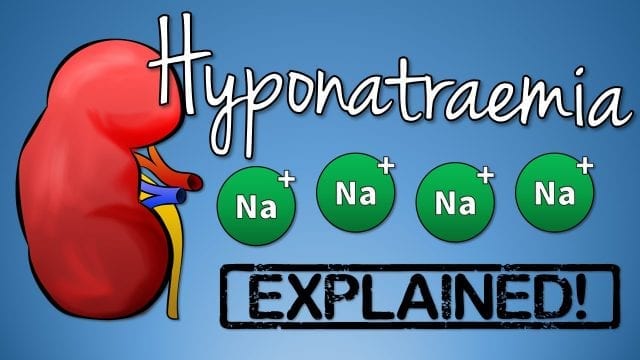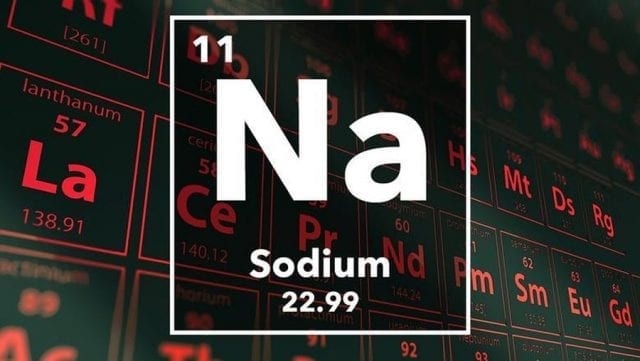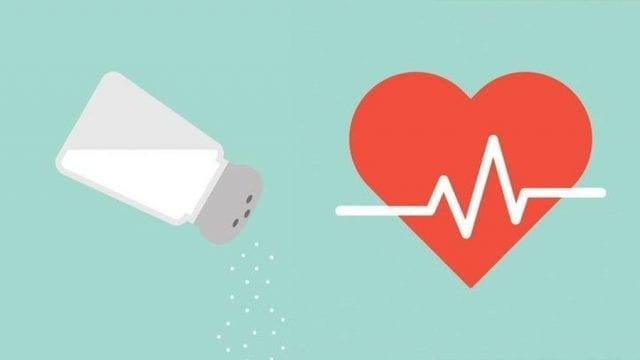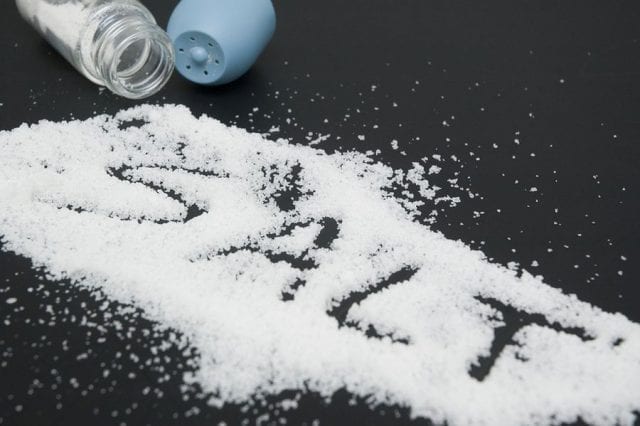
Hyponatremia is a condition in which the concentration of sodium in the blood is low. The normal level of sodium in serum is between 135- 145mEq/L. In hyponatremia, the level of sodium falls below 135mEq/L.
The normal recommended intake of sodium per day is 1500mg. Deficiency of sodium is usually caused by sodium loss rather than from a lack of sodium intake. Salt constitute 40% sodium and 60% chlorine. So one teaspoon of salt provides about 2300mg of sodium. Disorders with kidney, liver problems, dehydration, and vomiting, certain diuretic medicines are the major cause of low sodium in the blood.
Sometimes it happens; certain conditions may cause people to drink too much water polydipsia, which can lead to this disease.
Symptoms
Signs and symptoms include:
- Nausea
- Headache
- Lethargy
- Fatigue
- Vomiting
- Loss of appetite
- Muscle weakness
- Spasms and cramps in your muscles
- Confusion

The human brain is responsive to changes in the level of sodium. Symptoms such as sluggishness and confusion also occur. The patient goes to an unresponsive state or even into a coma state when sodium goes below 125mEq/L.
Diagnosis
Diagnosis is made by the measure of sodium in the blood. Blood and urine test are done to evaluate the amount of fluid in the body and also the contents of urine. The level of sodium falls below 135mEq/L for hyponatremia.
Need of minerals in our body
Minerals are necessary for the normal functioning of the body cells. They help in the functioning of muscles and nerves and maintain fluid balance. Since electrolyte, they can be dissolved easily in a liquid such as blood. Sodium, potassium, Calcium, Bicarbonate, Magnesium, Chloride and Phosphate are some of the essential electrolytes.
Electrolyte levels may vary mainly with the water level in the body.
Importance of Sodium
Sodium is a crucial electrolyte for several body functions such as control of blood pressure, maintenance of fluid balance and also functioning of the nervous system.

Sodium is found in blood and the fluid surrounding the cells. Adequate intake of sodium is needed to maintain fluid balance in and out of the cells. The best source of sodium is vegetables and sea salt.
An analyze on Hyponatremia
Low sodium level in the body results in water entering the cells, which in turn cause them to swell. This can lead to many health problems.
Three types of Hyponatremia are as follows:
- Euvolemic hyponatremia
In this type, the total water level in the body is more, but the body’s sodium content stays the same. Drinking only plain water after heavy exercise may cause this condition.
This can occur due to:
- Hypothyroidism
- Hyperglycemia
- Intake of Drugs like carbamazepine, opioids, chloropropamide, phenytoin, etc.
- Certain neuropsychiatric disorders
- SIADH( Syndrome of Inappropriate Antidiuretic Hormone secretion):
The antidiuretic hormone, Vasopressin helps regulate the water in the body by controlling the amount of water excreted by the kidney. It decreases water excreted by the kidney, which retains more water in the body and dilutes the sodium. This happens when vasopressin is inappropriately secreted.
- Hypervolemic Hyponatremia
Here sodium and water in the body increases, but the increase in water is greater. Hence sodium is low.
This condition is caused due to:
- Acute or Chronic kidney disease
- Nephrotic syndrome
- Heart failure
- Liver Cirrhosis
The above diseases causes’ body to retain sodium and fluid, but the fluid is more retained than sodium.

- Hypovolemic Hyponatremia
In hypovolemic hyponatremia, water and sodium are lost from the body. But here the loss of sodium is greater than water.
Conditions which causes this includes:
- Severe dehydration
- Severe diarrhea and vomiting: If the patient replaces their fluid loss just by water, sodium is diluted.
- Excessive sweating
- Salt losing kidney disease
- Gastric suction
- Intravenous Immunoglobin(IVIG) mixed with maltose and given to renal failure patients
- Addison disease
- Diuretic drugs: These drugs increase urine output, which increases sodium excretion.
Treatments and Remedies
- Lessen your fluid intake
Consume less than 1-liter water a day.
- If it is due to any disorders like kidney failure, heart disease, the disease has to be treated first
- Usage of the diuretic drug can be stopped if that is the cause, or else its dosage can be reduced.
- Salt tablets are also prescribed for mild or chronic hyponatremia
- Intravenous infusion of the electrolyte is suggested for hypovolemic hypothermia patients.
- In the case of hypervolemic hypothermia patients, medication is given. Dialysis or renal transplantation is suggested for kidney-related problems.
But an increase in the sodium level too rapidly can cause permanent brain damage.
A Track on your Health

It’s nothing but noting down your health each day. Keeping a day to day health record of our daily food habits, like how much vitamins, minerals we intake, how much water we drink, and what you feel of your body. We can also note down what all medicines we took a particular day, whether we do any physical exercise, do we notice any symptoms, do we have any pain, all these can be recorded by a symptom tracker.
Keeping a journal of our health can lead us to better treatment. Doctors can also give proper treatment and correct medication by just looking at the symptom tracker.
Some Remedies
Coconut water is a good electrolyte for dehydration. Daily consumption of two third vegetarian foods (unprocessed) and one-third of nonvegetarian foods (unprocessed) amounts to about 600mg of sodium (with no salt added). Table salts, Soya sauce, Salami, Processed cheese, Olives, Pickles are some of the foods high in sodium. Nowadays it is essentially important for people to consume unprocessed food items in order to keep themselves fit.
Hyponatremia can also occur if our salt intake is not in proportion with water intake. Supplements are also helpful in managing the electrolyte level. Electrolytes play a vital in normalizing the functioning of our body. Fruits, vegetables, certain natural health drinks are a good source of the electrolyte.






